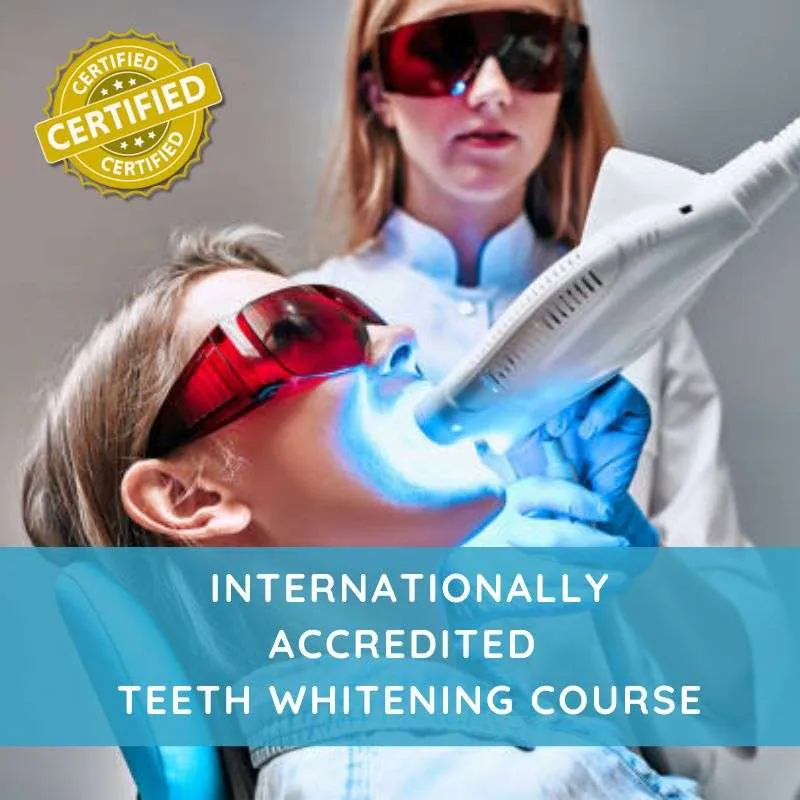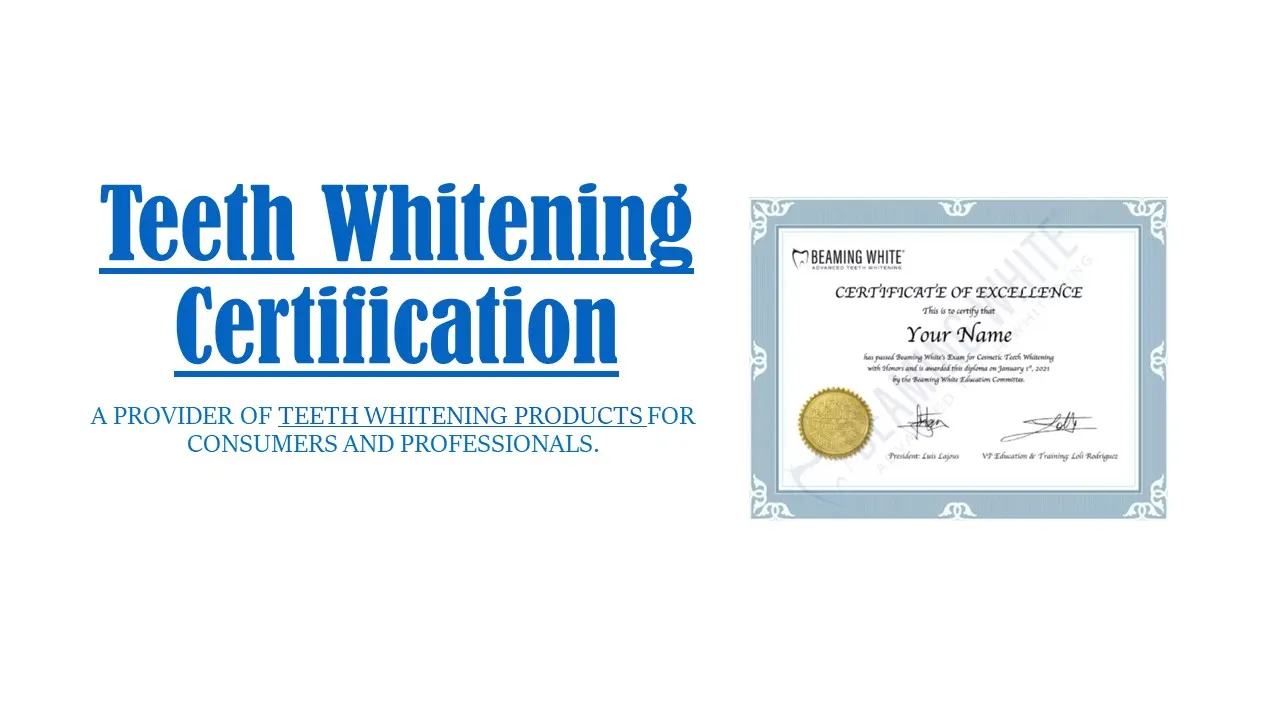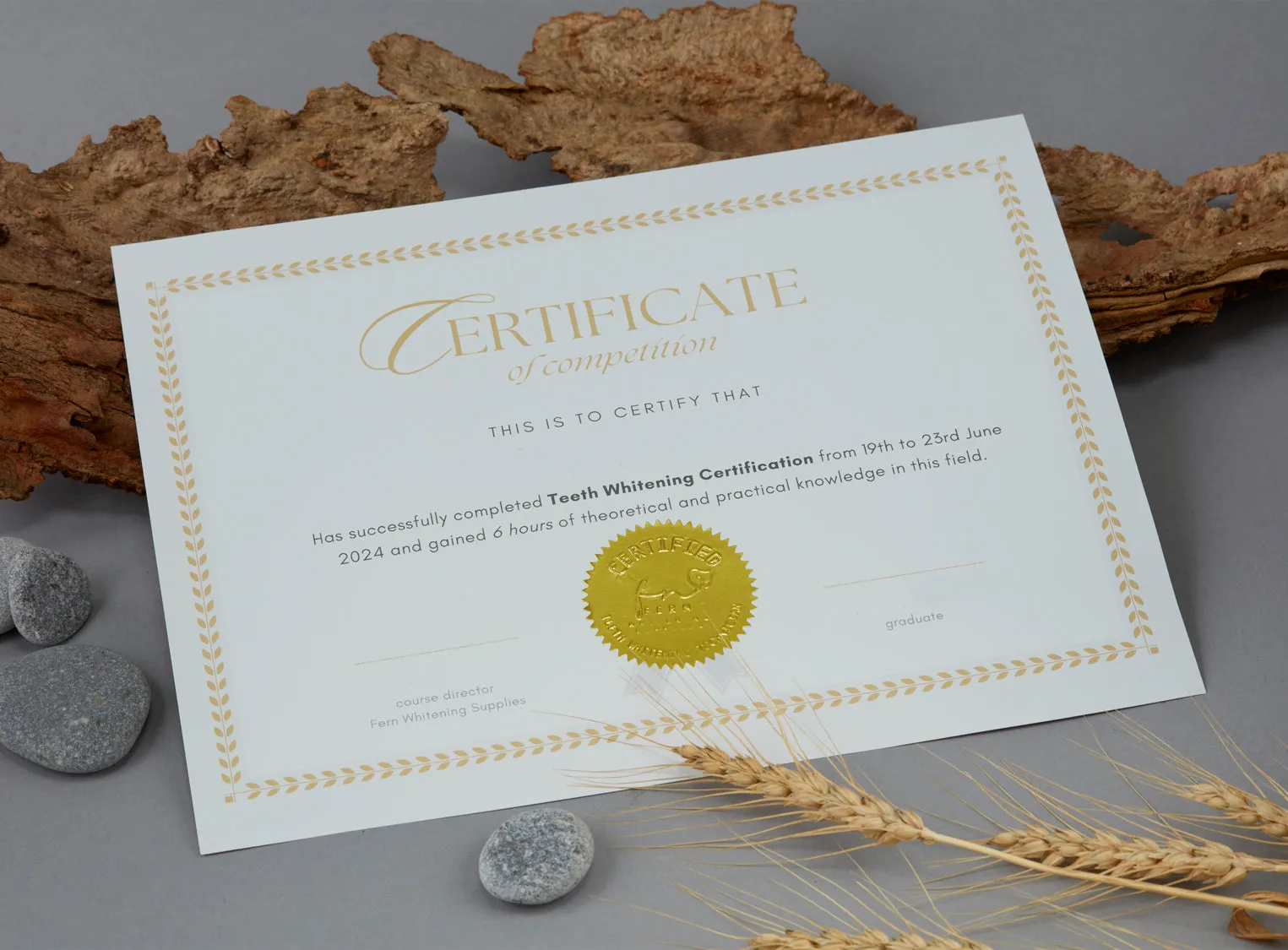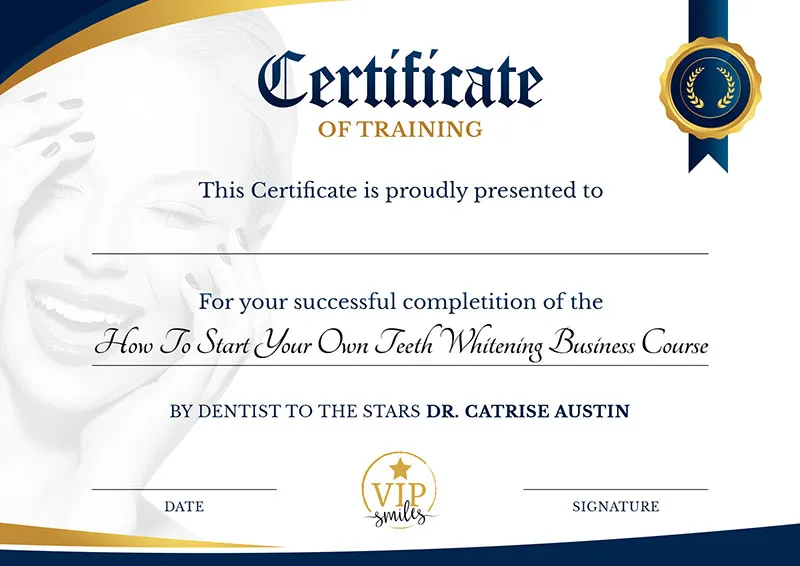Understanding Teeth Whitening Certification
Teeth whitening certification is an essential credential for individuals aiming to provide professional teeth whitening services. This certification ensures that practitioners possess the necessary knowledge, skills, and understanding of safety protocols to perform these treatments effectively and ethically. The process typically involves completing a certified training program, passing examinations, and adhering to ongoing education requirements. Achieving certification demonstrates a commitment to quality care and adherence to industry standards, ultimately benefiting both the practitioner and the client. It’s a mark of professionalism and competence in the rapidly growing field of cosmetic dentistry.
Benefits of Certification
Enhanced Credibility

Certification significantly boosts your credibility within the dental and cosmetic industry. Clients are more likely to trust and choose a provider who is certified, knowing they have undergone specialized training and met specific competency standards. This trust translates to increased client acquisition and retention, building a solid reputation for quality and reliability. Displaying your certification prominently in your practice and marketing materials is a clear signal to potential clients that you prioritize their safety and satisfaction. It’s a valuable asset in a competitive market, helping you stand out from non-certified providers.
Increased Earning Potential
Certified teeth whitening technicians often command higher fees for their services. This is because certification validates their expertise and the quality of care they provide. Clients are usually willing to pay more for services from a trusted professional, recognizing the added value and assurance of safety. Furthermore, certification allows you to offer a broader range of services, potentially increasing your revenue streams. By investing in certification, you’re investing in your career’s financial success, ensuring long-term profitability and growth in the teeth whitening market.
Expanded Service Offering
With certification, you can expand your service offerings, catering to a wider client base and addressing a broader range of dental needs. This expansion can include advanced whitening techniques, specialized treatments for sensitive teeth, and the ability to offer a comprehensive range of cosmetic dental services. Expanding your services not only attracts new clients but also increases the likelihood of repeat business, as clients come to you for multiple dental needs. This diversification ultimately strengthens your business model and provides opportunities for continuous growth and adaptation to evolving industry trends.
Types of Teeth Whitening Certifications

Certification for Dental Professionals
For dental professionals such as dentists and dental hygienists, certification often focuses on advanced techniques, specific product knowledge, and integration of teeth whitening into comprehensive dental care plans. These programs build upon existing professional foundations, allowing for more in-depth understanding and specialized training. The certification might cover topics like the latest whitening technologies, patient assessment, and management of potential side effects. It ensures that dental professionals can offer optimal teeth whitening solutions within the scope of their practice, ensuring the highest standards of patient care and safety.
Certification for Non-Dental Professionals
Non-dental professionals, such as estheticians or spa technicians, also have certification pathways, usually focusing on specific training programs. These courses typically cover the basics of teeth whitening procedures, including client consultations, product knowledge, and proper application techniques. It is essential to understand the legal requirements in your specific area. This type of certification emphasizes safe practices, understanding the limitations of the services, and maintaining ethical standards. These programs ensure that individuals in non-dental settings can provide teeth whitening services competently, adhering to the rules of their jurisdiction.
Choosing the Right Certification Program

Selecting the appropriate certification program is pivotal for your career goals. Researching accredited institutions and evaluating their curriculum, instructors, and resources are important steps. Verify that the program meets the specific requirements of your state or region, and ensure it aligns with your professional background and experience. Consider the program’s reputation, its hands-on training components, and the availability of ongoing support. Reading reviews and testimonials from previous students will give insights. Choosing the right program will ensure that you receive the highest quality training, positioning you for success in the teeth whitening industry.
Prerequisites and Eligibility
Prerequisites for teeth whitening certification vary depending on the program and the location. Some programs may require candidates to have a background in dentistry or esthetics, while others are open to individuals with no prior experience. Typically, candidates must meet specific age requirements and possess a high school diploma or equivalent. It’s crucial to carefully review the eligibility criteria of each program before applying to ensure you meet all the necessary qualifications. Also, confirm any licensing requirements in your area, as these may impact your ability to practice after certification.
What to Expect in a Certification Course
Course Curriculum and Content

A comprehensive teeth whitening certification course generally covers various topics to provide a strong foundation for providing professional services. The curriculum commonly includes instruction on the science of teeth whitening, understanding tooth structure and stains, and various whitening methods. The course usually explores different whitening products, including their active ingredients, application techniques, and safety protocols. Participants will learn about client consultation, contraindications, and potential side effects. Furthermore, the training provides in-depth information on infection control, ethical considerations, and legal aspects of the teeth whitening practice.
Hands-on Training and Practical Experience
Practical, hands-on training is an essential component of any reputable teeth whitening certification course. This allows students to apply their knowledge and develop practical skills under the guidance of experienced instructors. Practical sessions involve learning how to prepare clients for treatment, selecting appropriate whitening products, and performing the whitening procedures. Students get to practice various techniques using models and in many cases, real clients, providing the real world experience necessary to build confidence and proficiency. This immersive training ensures that graduates can confidently provide safe and effective teeth whitening services.
Examination and Assessment
Most certification programs include an examination to assess your understanding of the course material and your proficiency in performing the required procedures. The examinations can be a written examination or a practical exam where you will perform teeth whitening treatments under supervision. Passing the examination is essential for receiving certification and proving your knowledge of safety protocols. The assessment process provides the certification body with confidence that you possess the skills necessary to provide safe and effective services.
Post-Certification Support and Resources

Continuing Education Requirements
Many certification programs require continuing education to maintain your credentials. These requirements ensure that certified professionals stay updated with the latest advancements and best practices in the field. These continuing education programs cover new techniques, product updates, and changes in regulations, and best practices. Continuing education may involve attending workshops, participating in webinars, or completing advanced training courses. Keeping up with your education will help you retain your certificate and shows your commitment to provide the best service.
Staying Updated with Industry Trends
The teeth whitening industry is continuously evolving, with new products, techniques, and technologies emerging regularly. Staying current with the latest trends is crucial for professionals to maintain their competitive edge and provide their clients with the most effective treatments. This means subscribing to industry publications, attending conferences and trade shows, and participating in professional development activities. By staying abreast of trends, certified professionals can incorporate new innovations into their practice, improving outcomes and client satisfaction.
Marketing Your Teeth Whitening Services

Effectively marketing your teeth whitening services is essential for attracting clients and growing your business. Developing a marketing strategy that highlights your certification and expertise is key. This includes creating a professional website, using social media to showcase your work, and implementing targeted advertising campaigns. Highlighting testimonials from satisfied clients is a strong way to build trust and credibility. Offering promotions and discounts to attract new clients and generate repeat business is another strategy. By consistently promoting your services and providing excellent customer service, you can build a strong reputation and establish a successful teeth whitening practice.
Legal and Ethical Considerations
Practicing teeth whitening comes with legal and ethical responsibilities that must be taken seriously. Certified professionals must adhere to all relevant regulations and guidelines, including those related to product usage, client consent, and data privacy. Ethical considerations encompass transparency with clients, accurately representing your services, and providing honest and informed recommendations. Following these guidelines ensures you protect your business and build trust with your clients. Understanding and upholding these ethical principles is crucial for maintaining your professional reputation and contributing to the integrity of the teeth whitening industry.
In conclusion, achieving teeth whitening certification is a valuable investment that leads to professional growth, credibility, and a more successful business. By understanding the certification process, choosing the right program, and continuously updating your skills, you can establish yourself as a trusted and sought-after provider in this growing industry. Certification also ensures that you are providing safe, ethical, and effective treatments, ultimately benefiting your clients and your career.
